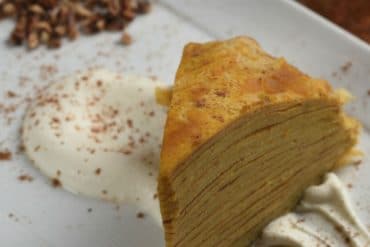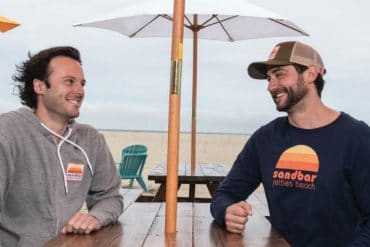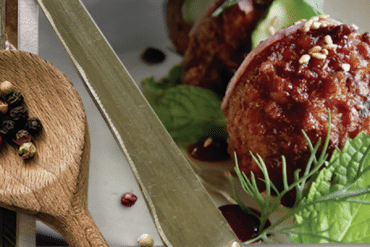Every year, the Nantucket Wine Festival gathers a gifted group of sommeliers from around the country to lend their expertise to this juicy event. This year’s roster is stacked with twenty-seven wine tasting talents hailing from Nantucket, Cape Cod, Boston, New York, New Jersey, California and beyond. In preparation for the festivities, N Magazine caught up with four of these featured somms — Tracey Devlin, Todd Lipman, and Nicholas and Lauren Daddona — to get a taste of what goes into having one of the most prized palates in town.
N MAGAZINE: Tell us what a sommelier does in five words.
TRACEY: Shares their love of wine.
TODD: Facilitates gastronomic enjoyment for others.
LAUREN: Alcoholic beverage quality assessment professional.
NICHOLAS: Can it be a haiku?
Why did I choose wine?
Long love of living better
Wine, food, and passion.
 N MAGAZINE: I’m glad you broke out the clever language, Nick, because sommeliers can come up with some pretty zany adjectives for wine. Do you somms have any favorites?
N MAGAZINE: I’m glad you broke out the clever language, Nick, because sommeliers can come up with some pretty zany adjectives for wine. Do you somms have any favorites?
LAUREN: Absolutely, especially when speaking with other somms. Aussie Riesling smells like beach balls. Muscadet smells like stale beer. New Zealand sauvignon blanc smells like cat pee — or pipi du chat, if we’re being fancy!
TRACEY: I am a big dork for the descriptors. I love Burgundy and I often use the term “barnyard funk.” That may not sound appealing to most, but it makes my mouth water.
TODD: I am a firm believer in simplifying wine for our guests, so I tend to avoid flowery language. That being said, I do recall once describing 1999 Chateau Musar as a “chocolate covered horse.”
N MAGAZINE: What’s the purpose of these descriptors anyway? I mean, what’s so great about a wine that smells like cat pee?
TRACEY: Scents trigger memories, and the more descriptive you are, the better the chance you have to be taken back to a great place or a special moment.
NICHOLAS: Tasting can be such a personal intimate experience with one’s own senses — these descriptors are as important as two people describing the same painting.
N MAGAZINE: On that point of tasting: How can I improve my palate beyond just simply, well, tasting? Any tricks or suggestions?
TRACEY: Read! I love reading Wine Spectator. It has so many great articles, tasting notes and wine ratings.
LAUREN: My favorite “library books” for wine are the Wine Atlas by Jancis Robinson and Hugh Johnson and also The Sotheby’s Wine Encyclopedia.
NICHOLAS: Learn one wine, whether great or not, $5 or $5,000. The trick is, after you’ve learned that wine, whenever you drink another wine, mentally compare it to the wine you know so well. It will help make you think about your palate, and that is the hardest part.
TODD: Sorry to disappoint, but tasting is the answer. However, not only wine — taste everything.
 N MAGAZINE: Tracey, what’s the greatest error you see people making when choosing a wine?
N MAGAZINE: Tracey, what’s the greatest error you see people making when choosing a wine?
TRACEY: Reliance on pairing. I have seen a lot of people order a big heavy cabernet because they ordered a steak dish for dinner, but they do not like cabernet. People should order what they enjoy drinking and work with their sommelier to find something that suits them.
N MAGAZINE: Nick, are there any trends hap- pening in the wine world that people should be aware of?
NICHOLAS: The small guys are in! From California to southern Italy, technology and transportation logistics has made it faster and easier for small production wineries to offer their wares to the world. Just look at Napa Valley, a classic region known for its money. But young energetic winemakers and producers are using technology and logistics to offer their wines to the world. Not to mention wine from Uruguay, Lebanon, Slovenia, China and Africa.
LAUREN: Yes, quality wine can be found in all corners of the world. I haven’t yet tasted great wine from China, but I expect to in the next five years. Being a global society isn’t per se a trend, but it is something to be aware of with regards to wine as much as anything else.
 N MAGAZINE: Ok, so here’s a hypothetical for everyone: You’re headed to a dinner party on Nantucket and you have $20 to spend on wine — what are you buying and why?
N MAGAZINE: Ok, so here’s a hypothetical for everyone: You’re headed to a dinner party on Nantucket and you have $20 to spend on wine — what are you buying and why?
TODD: Vietti ‘Tre Vigne’ Barbera. It’s delicious and you haven’t told me what we are eating yet. However, no matter what the answer, I’ll be prepared.
TRACEY: Segura Viudas Aria Brut Cava. I have been to the winery in Spain, which was an incredible experience. It is so well priced, delicious, and a crowd pleaser.
NICHOLAS: Nantucket is all about the rosé. I’m going to pick the Bonny Doon Vin Gris Cigare, a glorious and compelling blend including grenache — bright fruit, finished with a screw cap, old world in style made by a classic, Mr. Randall Grahm.
LAUREN: Either rosé or Cremant. A delightful bottle of rosé can easily be purchased at that price, or if I was looking for good value sparkling, Cremant is always a go-to. Made in the same method as Champagne but from other regions in France, it is one of my favorite values in wine.
N MAGAZINE: What about for the non-drinker? Are there any decent non-alcoholic wines, or why bother?
TRACEY: I think why bother? If I am thinking non-alcoholic, I would just drink a Coca-Cola and be very happy.
TODD: I offer n/a beer at the restaurant, but non-alcoholic wine does not make sense to me.
NICHOLAS: I hear Welch’s makes a great one! If I’m in the potent-potable mood but looking for complexity in your beverage that pairs with food, I love tea. The top restaurants in Boston offer tea and tea pairings as part of the experience.
LAUREN: I can’t say that I taste much non-alcoholic wine, though I can say that the few I have tasted are terrible. I would recommend the Duche de Longueville n/a sparkling cider from Normandy, which is totally delicious and is in the “wine family” as much as any of the other yucky n/a stuff that I know of.
 N MAGAZINE: What’s the best way to soak up the Wine Festival without getting pickled?
N MAGAZINE: What’s the best way to soak up the Wine Festival without getting pickled?
TRACEY: Grab the program, mark down what wines or chefs you want to check out and keep it all organized. I am a big fan of tasting notes. Even if it’s just jotting down a few words under the name of the wine it is always something I refer back to.
LAUREN: It’s not usually fun to enter these grand tastings and expect to taste everything, so establishing a motive is usually a good idea.
TODD: Perhaps the biggest piece of advice I can offer is to remember to spit the wine you taste. Revisit a table if you wish to drink the wine and remember water and food are your friends.
NICHOLAS: The great thing about the festival is not just the great food and wine, but the people behind it. If you taste some great food or try some great wine, take a moment to engage the chef, winemaker or sommelier. You will be happy you did! Passion exudes from everyone here. After all, we do it because we love it.






